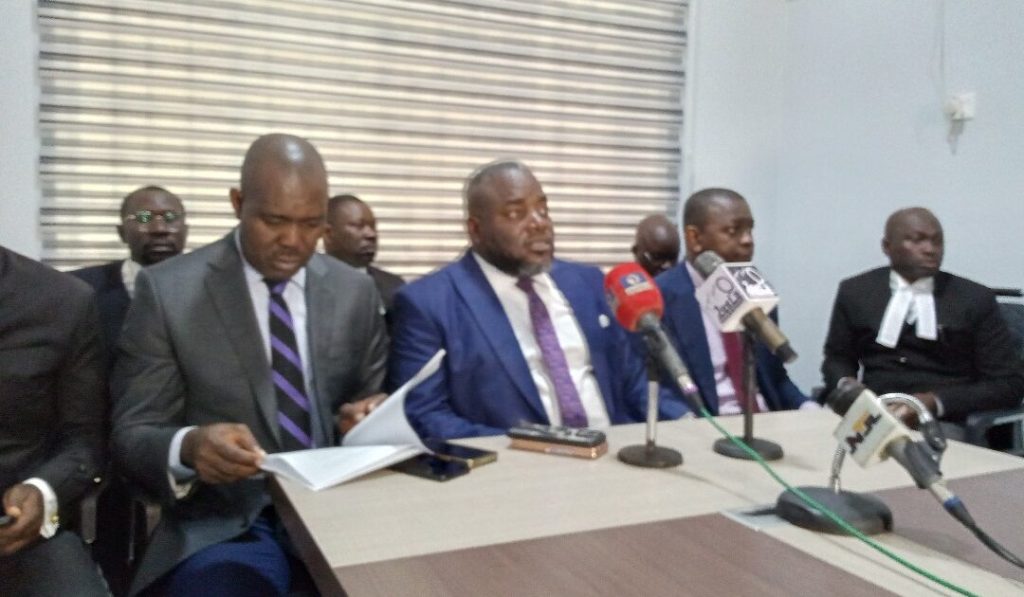The prolonged incarceration of 13 domestic staff belonging to former Nigerian First Lady, Dame Patience Jonathan, has sparked questions about the efficacy and fairness of the judicial system. Held at the Okaka Correctional Centre in Yenagoa since 2019, these individuals stand accused of breaking into Jonathan’s residence and stealing jewelry valued at approximately N500 million. Charges include attempted murder, and despite the passage of several years, their trial continues to be plagued by delays, raising concerns about potential manipulation of the legal process and the undue suffering inflicted upon the defendants.
The chairman of the Yenagoa branch of the Nigerian Bar Association (NBA), Somina Johnbull, shed light on the complexities surrounding the case. He emphasized the capital nature of the charges, requiring the mandatory presence of all legal representatives before proceedings can commence. With each of the 13 defendants represented by a different counsel, achieving full attendance has proven consistently challenging, directly contributing to the protracted timeline. Johnbull stressed that the court itself has been prepared to hear the case on every scheduled occasion, placing the onus of the delays squarely on the absence of one or more defense lawyers.
This explanation, however, has been met with skepticism in some quarters. Critics point to the relatively advanced state of Bayelsa’s judicial infrastructure, including the implementation of e-recording systems, which are designed to streamline legal processes and expedite case resolution. The fact that this particular case has languished for so long, despite these technological advancements, fuels suspicion of deliberate obstruction. Allegations have emerged suggesting that the former First Lady is leveraging her influence to manipulate the proceedings, prolonging the defendants’ confinement and delaying the delivery of justice.
The court’s own willingness to step back from the case further complicates the narrative. Recognizing the intense public scrutiny and potential for bias, the judge offered to recuse himself, acknowledging the potential for the sensationalized nature of the case to influence perceptions of impartiality. However, the defendants, expressing confidence in the judge’s ability to preside fairly, requested the continuation of the proceedings under his purview. This unusual turn of events underscores the delicate balance between ensuring judicial impartiality and respecting the defendants’ right to choose their adjudicator.
The ongoing delays raise serious questions about access to justice and the potential for powerful individuals to influence legal proceedings. While the NBA chairman attributes the delays to logistical challenges related to the presence of multiple defense counsels, the extended timeframe, especially in the context of Bayelsa’s modernized legal facilities, raises legitimate concerns. The perception of undue influence wielded by the former First Lady adds another layer of complexity to the case, highlighting the potential for the justice system to be manipulated by those in positions of power.
The case of Patience Jonathan’s domestic staff stands as a stark reminder of the vulnerabilities inherent within legal systems. The protracted nature of the trial, the challenges in convening all necessary legal representatives, and the allegations of external influence paint a picture of a system struggling to deliver timely and impartial justice. This situation underscores the urgent need for continuous scrutiny and reform to ensure that all individuals, regardless of their social standing or connections, receive fair and expeditious legal proceedings, safeguarding the fundamental principles of justice and equality before the law. The extended detention of these individuals without a conclusive verdict raises profound ethical questions about the balance between the rights of the accused and the pursuit of justice. The ongoing delays not only impact the lives of the defendants and their families but also erode public trust in the judicial process, highlighting the critical need for transparency and accountability within the legal system.














